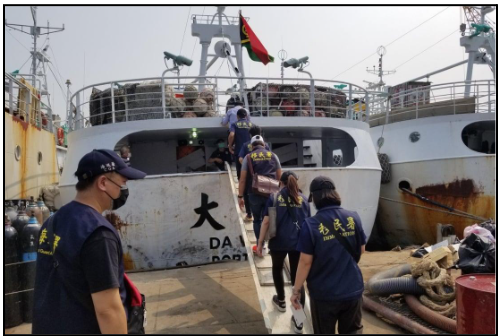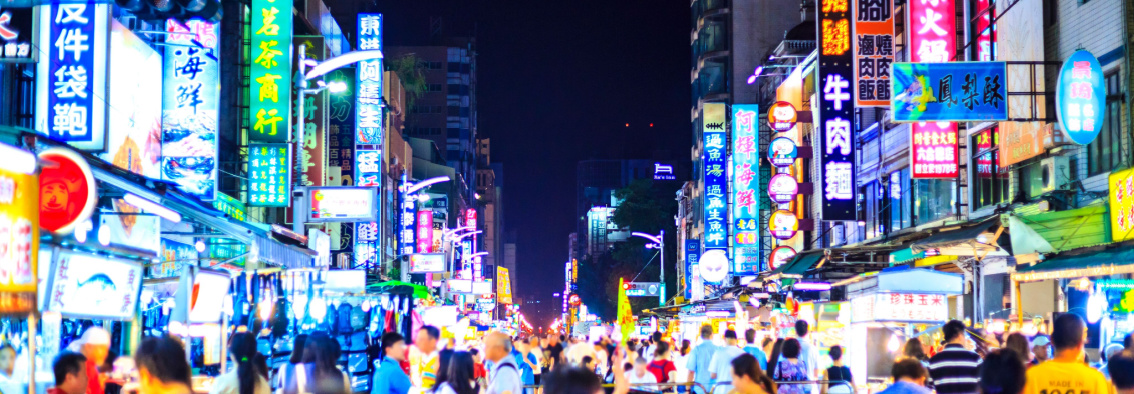Transnational crimes hurt our world and society, damaging the fabric of democracy and eroding human dignity. Human trafficking and related crimes are borne out of the convergence of poverty and human greed, often amplified by the chaos of war and other crises. In transnational human trafficking, criminal actors systematically exploit gaps in the law enforcement approaches and systems of different countries, as well as the willingness, capabilities, and capacities of different governments. One of the notable transnational crime issues that Taiwan is currently combating is human trafficking.
Human trafficking is often described as modern slavery. It is a crime in which a perpetrator induces, recruits, harbors, transports, provides, or obtains a victim (acts), by means of force, fraud or coercion (means), and compels the victim to provide commercial sex acts or labor or other services (purpose). Victims can be both men and women, as well as children. Human trafficking can often be nuanced and complex, but when there is an element from each acts-means-purpose category, a crime of trafficking has occurred. Notable trafficking crimes found in Taiwan include: compelled sexual acts, abuses on fishing vessels, and domestic worker abuse. According to the US Department of State’s annual Trafficking in Persons Report (“TIP Report”), the Taiwanese government is making vigorous efforts to combat crimes of sex and labor trafficking, and has been ranked in the Tier 1 category for the last decade. [1]
The government of Taiwan, however, has not always recognized or fought these crimes in the past. As recently as the early 2010s, Taiwan was on the brink of being downgraded to the lowest ranking in the TIP Report. [2] In response, the Taiwanese government recognized the perils of this crime and the impact it was having on its citizens and society. In the last decade, the Taiwanese government has transformed its approach to trafficking, shifting from denying its occurrence to becoming a regional leader in combating trafficking.
Some of those achievements are worth noting. In 2016, Taiwan enacted the Human Trafficking Prevention Act (HTPA, 人口販運防制法), which criminalizes all forms of trafficking, and applies stringent sentences and penalties. Since its enactment, Taiwanese authorities have used the law to prosecute traffickers, and to encourage law enforcement and judicial members to employ it as a new lens to identify the crime when it occurs—as well as employing it as a new tool to arrest, investigate, prosecute, and punish perpetrators.
One of the biggest improvements has been in recognizing the role of the employment broker system in perpetuating human trafficking. The broker model—in which labor brokers control most aspects of employment for migrant workers—has become an undeniable part of Taiwan’s employment ecosystem. As a result of its opaqueness, the model has allowed systematic and egregious abuses to occur. While the broker model remains prevalent and continues to contribute to abuses that pervade Taiwan’s migrant worker environment, the government has taken a more forward-leaning approach to punishing brokers, resulting in a significantly higher number of recruitment brokers being penalized for abusive practices in 2021.
In addition, the Taiwan government is making progress in improving victim care. Specifically, it has worked to upgrade victim-centered shelter intake procedures for foreign victims, and to enhance the formal consultative role of non-government stakeholders in the victim identification, referral, and case management processes. While these efforts seem marginal and still fall short of ideal standards of victim care and support, the government has made significant progress in the last decade to treat victims with dignity, rather than as criminals.

Image: National Immigration Agency officials board the vessel Da Wang (大旺) as part of an investigation into abuses of migrant workers in Taiwan’s fishing industry (undated photo, likely January 2022). (Image source: CNA)
Taiwan’s efforts to combat human trafficking have not been perfect, but they nevertheless demonstrate why the island is often labeled a “beacon of democracy” in the Indo-Pacific region. In the last decade, in its effort to fight against trafficking, there has been (and continues to be) a balance of push and pull between government officials and civil society groups. They have challenged each other at every stage, but still work together for the greater good of society. However messy—and at times, frustrating—it may be for both sides when dealing with each other, Taiwan is a better place today because of their dynamic exchanges and efforts to hold true to the ideals of democracy, transparency, and rules-based order.
Despite these accomplishments and robust democratic processes, issues of human trafficking remain prevalent in Taiwan. The following three issues are representative of the types of crimes that pervade and negatively impact Taiwan’s society:
- Continued forced labor abuses on the distant-water fishing fleet. Life on fishing vessels, under the best of circumstances, is grueling and sometimes dangerous. Many fishing vessels that are either Taiwan-flagged, or else Taiwan-owned while operating under another flag, have been reported to abuse migrant workers: such abuses include withholding earned wages, depriving flexibility of movement, and confiscating passports and/or other legal documents in order to control and coerce workers. Government inspections are difficult, as many vessels are working in areas far from regular government patrol boats and routes, and rarely dock at ports. In addition, Taiwan authorities face jurisdictional issues, as different authorities are responsible for inspections, arrests (if unlawful behaviors are suspected), and investigations. Lack of coordination between agencies leads to a lack of meaningful progress in preventing trafficking on fishing vessels. Fishing vessels outside of Taiwan’s economic zone that are Taiwan-owned but do not fly the Taiwan flag also evade justice because these vessels often fly flags of nations that have less stringent labor laws and standards.
- Increased abuse against migrant domestic workers. As Taiwan’s economy improves, more people are working outside their homes and need support to care for their homes, children, and aging parents. To meet this growing demand, migrant domestic caregivers are entering into the labor system in increasing numbers. Despite the invaluable support that migrant workers bring into these homes, many factors (e.g., unfamiliar language, lack of traditional support network, new culture, etc.) leave them vulnerable to being exploited. Forced labor abuses include physical and verbal attacks and threats, long work hours, inadequate or unsafe living/sleeping arrangements, lack of freedom of movement, withheld wages, and the confiscation of passports and/or other documents. Since the location of abuse is in individual homes, it is very difficult for government authorities to prevent or intervene. Laws such as HTPA and the Labor Standards Act (勞動基準法) can be applied to prosecute abusive employers and/or protect migrant domestic caregivers, but Taiwan authorities are often reticent to recognize this category of crime as human trafficking. Thousands of migrant domestic workers are vulnerable to forced labor abuses due to this lack of enforcement.
- Continued broker abuse. Despite measures and efforts by the Taiwan government to protect migrant workers from broker abuse, human trafficking remains high under Taiwan’s current broker model. The current model skews the power dynamic in favor of the employers, making it easier for them to restrict migrant workers’ agency and freedom when they are in Taiwan. Migrant workers lack meaningful recourse when their employers take their passport and/or other legal documents, physically or verbally abuse them, withhold their wages, or make them work under harmful or dangerous conditions. Brokers often keep the migrant work force “in line” through intimidation and threats, exploiting their vulnerabilities as foreigners in Taiwan. Utilizing the broker system for finding employment/employees has become an accepted practice in the economy. Without a disruption in this cycle—via means of introducing a better mechanism or overhauling the process with better practices—the system is ripe for brokers to continue to abuse migrant workers.
In order to continue its fight against human trafficking and maintain its leadership in the region and on the global stage, Taiwan should consider pursuing the following recommendations:
- Fight against human trafficking with focus and resilient commitment. All stakeholders—from government officials to civil society groups, from academicians to business leaders, from activists to survivors—should partner together to vigorously fight against human trafficking. Taiwan should investigate, prosecute, and punish traffickers; protect victims and rehabilitate them to become survivors; and prevent the crime through education and public awareness campaigns.
- Improve interagency cooperation to combat trafficking on fishing vessels. Different agencies are responsible for inspection, arrests and detention, and prosecution of crimes committed onboard fishing vessels. Taiwan should provide opportunities for these authorities to train together, and to jointly establish standard operating procedures in order to ensure the successful sharing of information and delineation of duties.
- Ensure that Taiwan-owned vessels comply with Taiwanese labor laws. Taiwan should review existing laws pertaining to “flags of convenience” and establish new national standards to discourage Taiwanese owners from evading labor laws by flying non-Taiwan flags on their vessels.
- Train law enforcement and judicial authorities to utilize existing laws to protect all victims of trafficking. Existing laws are adequate for prosecuting crimes of trafficking. Taiwan should train law enforcement and judicial authorities to expand their understanding of existing mechanisms—and apply those frameworks to protect victims of trafficking, including migrant domestic workers.
- Promote accountability in the broker system. Brokers should be held to the highest labor standards and be held accountable if they commit crimes of trafficking through their business practices. Brokers should be encouraged to use standard contracts that are fair for both parties and exclude clauses that distort power dynamics—such as mandating that passports be kept by the broker or employer, or preventing workers from reporting abuse until after a certain period of service has occurred.
In summary, crimes of human trafficking remain prevalent in Taiwan. Taiwan authorities, however, have made strides in combating trafficking in the last decade. Nevertheless, there is still more work to be done to ensure that Taiwan is a safe place for migrant workers. As it has done in the last decade, Taiwan must remain committed and resilient in combating this crime in the next decade to come.
The main point: Over the past decade, Taiwan has emerged as a regional leader in combating human trafficking. However, it must do more to ensure that migrant workers are protected from exploitation in industries such as commercial fishing and domestic home care.
[1] The US Department of State’s Trafficking in Persons Report ranks more than 160 countries around the world in four categories (Tier 1, Tier 2, Tier 2 Watch List, and Tier 3) based on the government’s anti-trafficking efforts—to include prosecuting traffickers, protecting victims, and preventing the crime—on an annual basis. This annual report is congressionally mandated and released by the Office to Monitor and Combat Trafficking in Persons (J/TIP), and the most recent edition can be found here: https://www.state.gov/reports/2022-trafficking-in-persons-report/. Tier 1 ranking indicates that a government has made efforts that meet the Trafficking Victims Protection Act’s minimum standards. Governments need to demonstrate appreciable progress each year in combating trafficking in order to maintain a Tier 1 ranking. Tier 1 ranking does not mean that the government has fully or perfectly combatted the crime of trafficking in that given year.
[2] US Department of State source.





